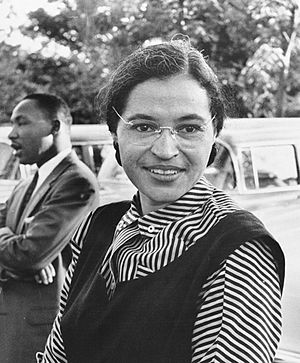Civil disobedience facts for kids
Civil disobedience is when people peacefully refuse to obey certain laws or demands from a government. It's a way to protest without using violence. It's one of the main methods of nonviolent resistance.

Contents
What is Civil Disobedience?
Civil disobedience is a powerful way for people to show they disagree with something unfair. Instead of fighting, they choose to break a law they believe is wrong. They do this openly and accept the consequences, like being arrested. The goal is to make people notice the problem and push for change.
History of Civil Disobedience
The idea of civil disobedience has been around for a long time. But some important people helped shape how we understand it today.
Henry David Thoreau's Ideas
The American writer Henry David Thoreau wrote an important essay in 1849 called Civil Disobedience. He wrote it after he refused to pay a tax that supported a war he didn't agree with. Thoreau believed that people should follow their conscience, even if it meant breaking a law. His ideas inspired many future activists.
Mahatma Gandhi's Peaceful Protests
Mohandas Karamchand Gandhi was a leader from India. He used non-violent civil disobedience in South Africa from 1893 to 1914. He fought for fair treatment for Indian people living there. Later, when he returned to India, he used these same methods. He led a big movement in 1930 to help India gain its independence from British rule.
Martin Luther King Jr. and Civil Rights
Dr. Martin Luther King, Jr. was a famous leader in the American Civil Rights Movement in the 1960s. He and other young activists used civil disobedience to fight for equal rights for African Americans. They organized peaceful protests, sit-ins, and marches. These actions helped end racial segregation and change unfair laws.
Images for kids
-
Henry David Thoreau's classic essay Civil Disobedience inspired Martin Luther King Jr. and many other activists.
See also
 In Spanish: Desobediencia civil para niños
In Spanish: Desobediencia civil para niños



